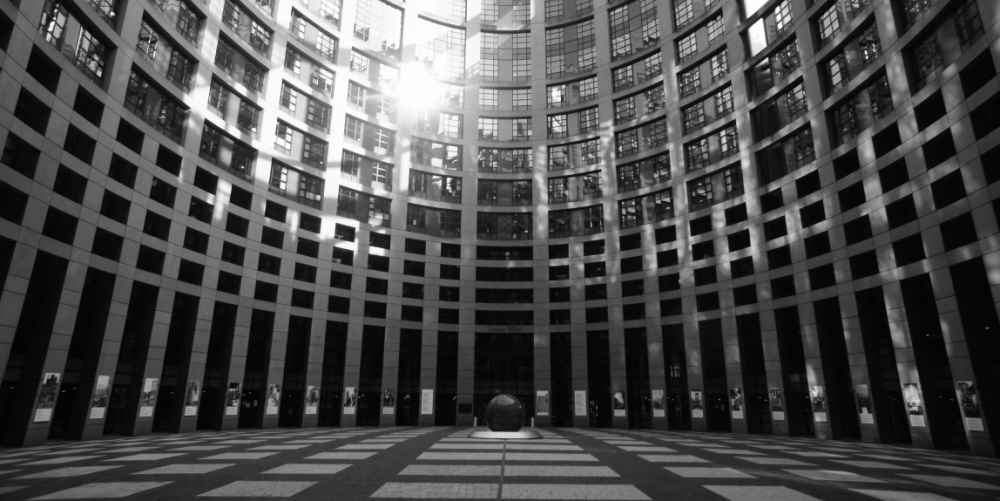The national vote that is determining European history
With only weeks left till the UK’s referendum, the rest of Europe holds its breath awaiting the outcome. What is well known is that the race is tight. But what is unimagined is the day after – regardless of what...
With only weeks left till the UK’s referendum, the rest of Europe holds its breath awaiting the outcome. What is well known is that the race is tight. But what is unimagined is the day after – regardless of what the outcome may be.
In the comprehensive report Argument or organisation? The battle over membership of the European Union Olivia Bailey presents a poll conducted by GQRR for FEPS, the Fabian Society and the TUC. She argues that it may be too close to call just yet and that the gap continues to narrow. Since the ‘Leave’ camp scores higher as being more persuasive, the answer to that would be to focus on mobilising the undecideds. Here in particular, the Labour party would seem to have a chance to change the current trend. The percentage of the voters who supported Labour in the European elections in 201, but now do not intend to vote in the referendum is higher than the ones noted for the Conservatives or the Lib Dems.
The question remains how to accomplish that. Studies prove that the European vote is a specific one, where voters’ behavioral patterns change and very volatile. Although it is hard to get involved in what is argued to be a domestic campaign, convinced Europeans can hardly refrain from being part of the debate. The referendum – or rather negative term of “Brexit” – has become a part of political and social discourse around the television and kitchen tables across the EU. In that sense, the European progressive family has a responsibility to offer their story to the citizens of the other member states. There are big concerns across Europe about David Cameron’s renegotiation, who may have won his ‘emergency brake’ battle over the Council at an enormous cost. The fact that he had kept the EU hostage in the months it should have been at full capacity to react to different challenges prompted much of the anti-British sentiments. Alongside arguments about ‘British pride’, many, also on the centre-left, see a potential divorce as a relief for both sides.
Additionally, the UK’s renegotiation became a reference point for many across the EU, who raise the question if their respective countries could step up their game. This dynamic was in play in the recent referendum in the Netherlands over EU-Ukraine Association Agreement. Nearly two thirds of voters said ‘no’. Even though the question was different, the vote offered a chance to say that the Netherlands should not favour further integration and that the conditions of membership should be re-discussed so that the state will no longer be just an EU net-payer.
What is interesting is that there is a common element between the Dutch and British pre-referendum campaigns, which was also evident in the recent Danish debate ahead of their vote in December 2015 on the question of their opt-out on EU justice and home affairs policy. If one browses the posters, there is a great similarity among the materials: ‘no’ is simple, while ‘yes’ seems to be very complex. This is especially the case when ‘no’ is translated to ‘Leave’, which has a double power of rejecting both the EU in the current shape and membership within it, whilst ‘yes’ may seem too narrow to express both the support for remaining and for the reforms that the EU most obviously needs to put in place.
Olivia Bailey’s report points out this is one of the reasons the ‘Leave’ campaign appears more passionate and resonates better in the core fields that voters care about. These, the data shows, are domains of: immigration; the economy; control of laws; security and terrorism. One can interpret these in many different ways, but it is striking that these are precisely the 4 cornerstones that the European Communities were founded on in the 1950s. The question of immigration was back then an issue of solving distributional conflicts while ensuring freedom of movement and equality of rights; the worries about the economy echo searching for the old promise that European cooperation will be a source of prosperity and progress; the control of laws reflects the pleas that the Community will safeguard and promote the rule of law and democracy; and finally the concerns on security remind of the ideal of peace for which the EEC was established to begin with. This observation leads to a straightforward conclusion – the debate at hand about the vision for the future. Most obviously the populations still long for the same values and the same guarantees to be at the heart of the project, but the solutions in place are no longer adequate. And that is what should motivate all – Labour and its sister parties from the EU – not to see 23rd of June as the end of the race, but as a beginning of a longer political marathon.
Hence although the debate on the future of Europe is perhaps as old as the integration process itself, it seems that reopening it is a long-term overdue process. This can explain why, following Bailey’s report, but also the findings of the FEPS Millenial Dialogue, there is an obvious a generational divide among the ‘Remain’ and ‘Leave’ voters. Over 50 per cent of the population aged over 65 favours leaving. While at the same time over 50 per cent of voters between 18 and 34 years of age declare themselves for ‘Remain’. This hope that is entrusted in the EU must not be taken for granted – especially at a time when democracy is being challenged and populists and nationalists seem rather on the rise in other states, such as Hungary, Poland, but also Austria and Germany. They need to be answered and providing a proposal that looks at the future of Europe in five, 10 or 20 years may be the key for the progressives to reconnect with this group of voters.
The idea that there is project that the centre left wants to pursue jointly is also what should be the bridge between now and 23 June. The polls give cause for cautious optimism, however much can still happen, before and after the ballots are cast. There should be a warning from history that cases in which a close call prompted social unrest, following which the general elections led to a total reshuffling of the political make up of the country. That is why the political imagination of the progressives has to stretch beyond the referendum date and look ahead to what happens after the results on both the national and the European level.

